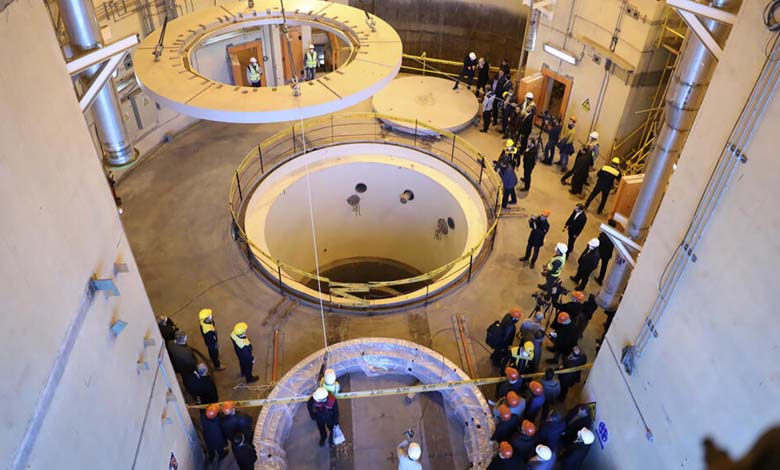Iran boosts uranium enrichment in response to IAEA pressure
The decision to increase enrichment remains at non-high rates to stay at the minimum of expectations

Diplomats said Wednesday that Iran is responding to last week’s decision by the United Nations’ International Atomic Energy Agency (IAEA) Board of Governors against it by increasing its capacity to enrich uranium at two underground sites. However, this increase is not as significant as many had feared, while observers believe Tehran is seeking escalation despite international pressures.
Such decisions by the 35-nation IAEA Board of Governors anger Iran, and its reaction to the previous decision made 18 months ago was to enrich to a purity level of 60%, close to the level required for weapons production, at a second site and announce a significant expansion of its enrichment program.
Five diplomats said the Islamic Republic plans this time to install more centrifuge cascades to enrich uranium at its two underground enrichment sites. Three of the diplomats said IAEA inspectors are monitoring Iran’s plan to issue a report to member states on Thursday. A Vienna-based diplomat said, “It’s not as much as I expected,” referring to the scale of the Iranian increase.
The diplomats explained, “Why? We don’t know. Maybe they are waiting for the new government,” referring to the death of Iranian President Ebrahim Raisi and Foreign Minister Hossein Amir Abdollahian in a helicopter crash last month and the presidential elections scheduled for June 28. The IAEA Board of Governors passed a resolution a week ago calling on Iran to enhance cooperation with the agency and reverse a recent ban on inspector access, despite earlier US fears that Tehran might respond with nuclear escalation. Only Russia and China opposed it.
Before that, Mohammad Eslami, head of Iran’s Atomic Energy Organization, said in a statement carried by Iran’s Fars News Agency that Tehran would respond if the IAEA Board of Governors passed a resolution against it.
The diplomats did not elaborate on the number or type of centrifuges being added or the level to which enrichment would be conducted, but one diplomat said they would not be used to rapidly increase Iran’s production of 60% enriched uranium, close to the 90% needed for weapons.
The diplomats said they would wait to see what the agency says Iran has actually carried out, but they were aware of Tehran’s plans. One diplomat said this move “comes at the minimum of expectations and we are certain they would have done it anyway,” meaning it would have happened even without the resolution.
Although Iran denies any desire to acquire a nuclear bomb, its program continues to advance. According to the IAEA, it is the only country among those not possessing nuclear weapons capable of enriching uranium to 60% and forming increasing stockpiles.
This threshold is close to the 90% level needed to make a nuclear bomb and far exceeds the allowed ceiling of 3.67%, which is used for electricity generation. Kamal Kharazi, advisor to Iran’s Supreme Leader Ali Khamenei, had said Tehran would be forced to change its nuclear doctrine if Israel threatened its existence, raising concerns about an Iranian nuclear weapon.












